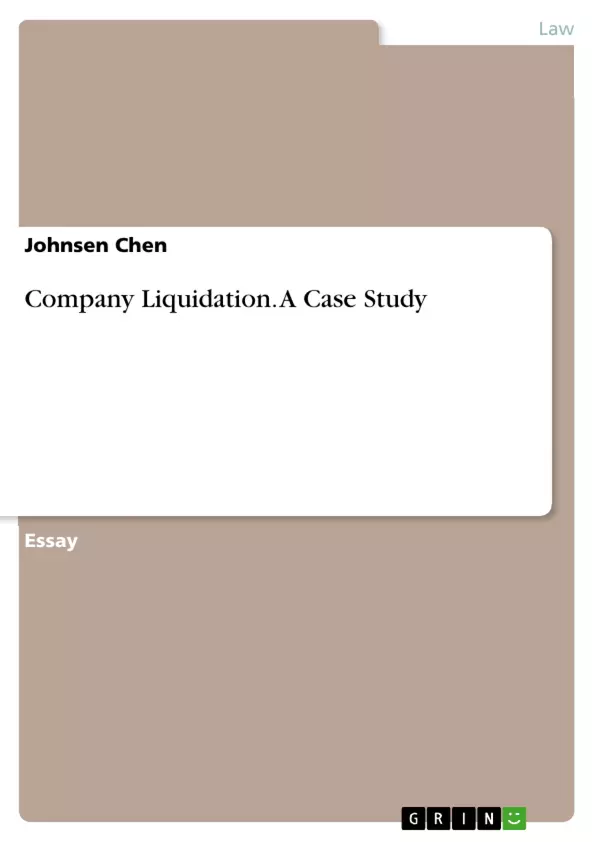Andrew in order to make the preparations for the new company has gone to make a loan of $100.000 from the bank. Moreover, the money was only transferred to the account of the company when it has been formed and it was acknowledged by Brandon for the benefit of the prospective Always True Ltd. After the liquidation the bank would like to recover the $100.000. The issue is whether or not the bank has the right to recover the loan.
However, it is stated in the story that the money should be transferred into the account of the Always true when formed thus it means that the name of the principal is stated in the contract. Principal in legal terms means a person, fictitious or otherwise, who authorizes an agent to act to create one or more legal relationships with a third party (Wikipedia, 2007).
According to Guest (1979), when agent contracts for named principal or whose name is disclosed then it may be laid down as a general rule where the agent drops out of the transaction as soon as the contract is made and acquires neither rights nor liabilities under it. In addition, Craig (N/D) stated that the principal must be named or at least be capable of being identified for the ratification to be valid.
In the case of Schmaltz v Avery , where the plaintiff entered into a contract of charter-party with the defendant, the plaintiffs described themselves as agents of the freighters and it was provided in the contract that, since they were contracting ‘on behalf of another party’ all personal liability on their part should cease when the cargo shipped (Guest, 1979).
Therefore I conclude that the company should be held liable as from the case study given, the contract signed have fulfilled the term above, where Andrew have disclosed the name of the company and the money was sent into the account of the company.
Inhaltsverzeichnis (Table of Contents)
- The bank wishes to recover its loan of $100.000
- Can the company proceed the contract that are signed by Brandon
- Whether or not, the vendor able to avoid the obligation to complete the property transaction
Zielsetzung und Themenschwerpunkte (Objectives and Key Themes)
This text explores the legal ramifications of pre-incorporation contracts and the liabilities of promoters in relation to contracts entered into before the company's official formation. It delves into the concept of agency and the implications of undisclosed or unidentified principals.
- Liability of pre-incorporation contracts
- Ratification of contracts after company formation
- Agency and undisclosed principals
- Enforcement of contracts by promoters
- Legal framework governing pre-incorporation agreements
Zusammenfassung der Kapitel (Chapter Summaries)
The bank wishes to recover its loan of $100.000: This section examines the liability of a company for a loan obtained by a promoter before the company's formation. It analyzes the concept of agency, focusing on the disclosure of the principal's name and the consequences of a lack of disclosure.
Can the company proceed the contract that are signed by Brandon: This chapter investigates the validity of a pre-incorporation contract signed by a promoter on behalf of a yet-to-be-formed company. It discusses the relevant legal provisions and case law, highlighting the personal liability of promoters for pre-incorporation contracts and the limits of ratification.
Whether or not, the vendor able to avoid the obligation to complete the property transaction: This section explores the ability of a vendor to avoid a property transaction entered into before the buyer's company was incorporated. It delves into the legal framework for property transactions, including the requirement for written authorization and the implications of undisclosed principals.
Schlüsselwörter (Keywords)
This text focuses on key legal concepts related to business law, including pre-incorporation contracts, agency, undisclosed principals, ratification, personal liability, company formation, property transactions, and legal framework governing pre-incorporation agreements.
- Quote paper
- Johnsen Chen (Author), 2007, Company Liquidation. A Case Study, Munich, GRIN Verlag, https://www.grin.com/document/110818



